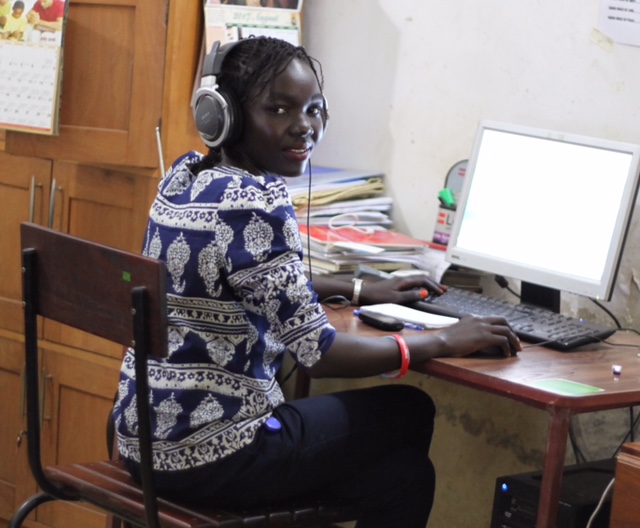When journalist Maura Ajak entered the room full of survivors of a vicious Sudan People’s Liberation Army (SPLA) gang rape, her stomach dropped.

Women and children, some as young as 11, waited quietly for the opportunity to share their stories. Ajak was initially approached by Bishop Paul Yugusuk, who told her horror stories about the women and children of Kubi, a small town near the city of Juba where she worked.
After gaining access to the hospital room where the women were being treated and hearing about their experiences, Ajak faced the challenge of reporting such a disturbing and sweeping allegation against the South Sudanese Army.
“Walking into that hospital room I was so angry, I was shaking,” says Ajak. “Listening to women and children who experienced such pain…I had never experienced violence like that.”
“After speaking with colleagues we agreed we needed to have every side of the situation covered before we could move forward with our coverage.”
That’s where Mustapha Dumbuya, a media trainer for Journalists for Human Rights, was able to help. Encouraging Ajak to pursue a statement from SPLA leadership, Dumbuya was able to navigate the sensitive situation due to his experience reporting on sexual and gender-based violence in Sierra Leone. (During his time at the University of Sierra Leone, Dumbuya worked with international trainers from JHR, in part helping him land the position with the organization in South Sudan.)

Get breaking National news
READ MORE: A look at what Journalists for Human Rights has done in Canada and around the world
Working as a radio reporter for Radio Bakhita, a subsidiary of the Catholic Radio Network, Ajak interviewed everyone she could – from other rape survivors, a women rights activist and eventually higher-ups within the Liberation Army itself.
With the help and guidance of Dumbuya and JHR, Ajak formed a strategy on how to effectively report the story that would start the much-needed conversation about rape and gender violence in South Sudan.
“My advice to her was to delay the story until she was able to get all sides,” says Dumbuya. “It would help mitigate the risk of a backlash from the security agents.”
“Despite the risks involved, Maura was determined to report on this issue. She told me ‘we shouldn’t allow these abuses to go unreported because we are scared of what they will do to us.’”
Devin Jones is a Toronto-based freelance writer
This post is a result of a partnership between Globalnews.ca and Journalists for Human Rights and is sponsored by:














Comments